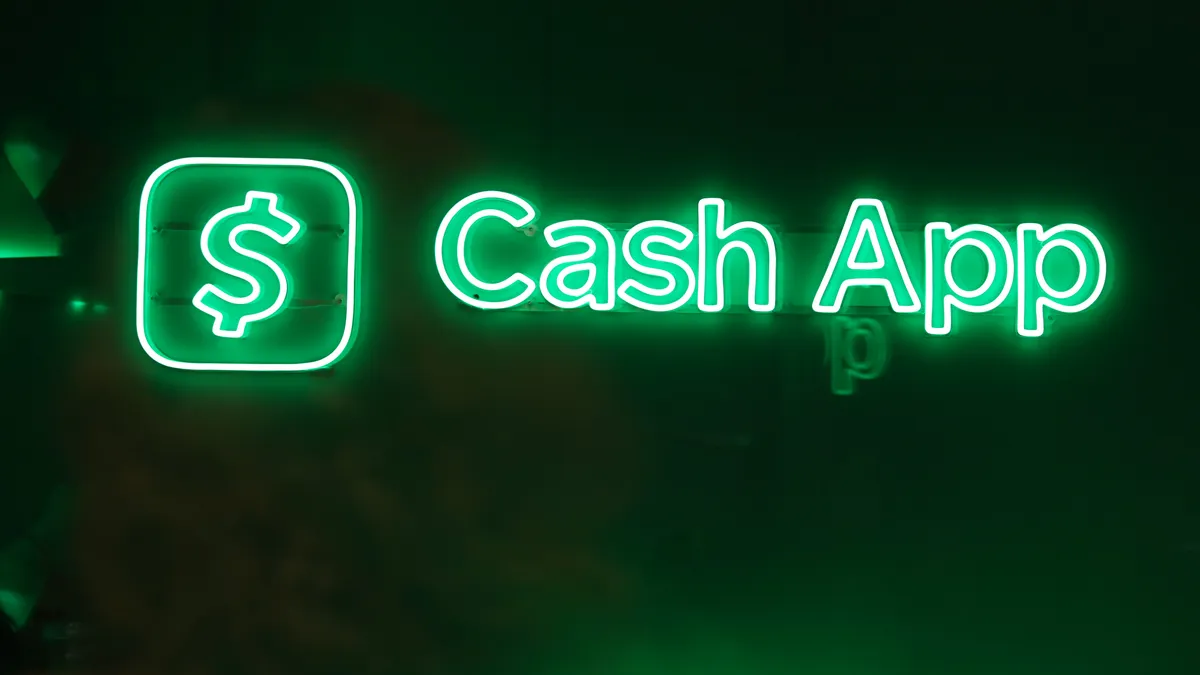Digital payments company Block acknowledged that its signature digital wallet, Cash App, didn’t bring in the profits it expected for the first quarter.
“We saw a pronounced shift in customer behavior during the time period that we typically see the largest disbursement,” Block Chief Financial Officer Amrita Ahuja said in a May 1 earnings call. She cited the time period as late February into March. “This coincided with [Cash App] inflows coming in below our expectations during the quarter,” she added.
The disappointing numbers came even after the company integrated the buy now, pay later service Afterpay onto Cash App debit cards in the first quarter. The payments firm has singled out Afterpay as a driver of growth.
Block saw gross profit for Cash App grow just 10% for the quarter — to $1.38 billion — compared to the same time period in 2024. Cash App’s gross profit nearly doubled from the first quarter of 2023 to the first quarter of 2024.
Oakland, California-based Block “saw a more pronounced impact to discretionary spending in areas like travel and media,” Ahuja said during the earnings call.
Ahuja also noted that Cash App had about 57 million monthly active users for the quarter, which analysts said was roughly flat compared to previous quarters.
“Users were seemingly flat or flatish for the fourth quarter in a row,” Macquarie Equity Research analyst Paul Golding said.
The relatively anemic growth, combined with a stagnant user base, “could spell difficulty in our view in achieving some of this flywheel momentum that Cash App was positioned for,” Golding said.
The softness in Cash App earnings are a possible warning sign for Block, William Blair analyst Andrew Jeffrey said. “The company needs a greater sense of product innovation urgency,” he said in an interview.
Part of the problem was that Block focused on engaging with current users rather than adding new ones, TD Cowen analyst Bryan Bergin said. “If you go back to a year ago, there was not really a focus on growing the network,” he said.
Instead, Block wanted Cash App users to utilize other products such as direct deposit, Bergin said.“Now they’ve realized it can’t be one or the other,” he said. “They need to be driving network [growth] and engagement.”
When reached for comment, a Block spokesperson referred to the company’s first-quarter shareholder letter, which said that the payments firm is improving Cash App in a number of ways. Those steps include rolling out short-term loans, called Cash App Borrow, to millions more users and increasing the borrowing limit for some eligible customers, but the letter says that’s happening now, in the second quarter.
“We expect these enhancements to Cash App Borrow will drive gross profit growth,” the letter said.
The spokesperson declined to say what Block had expected Cash App’s profit to be in the first quarter.
Block’s reported net income was more than cut in half, to $189.9 million for the first quarter, a drop from the $472 million for the year-ago quarter, according to the company’s quarterly filing with the Securities and Exchange Commission. That happened as the company’s total revenue fell 3% to $5.77 billion for the quarter and operating expenses climbed 6% to $1.96 billion.













